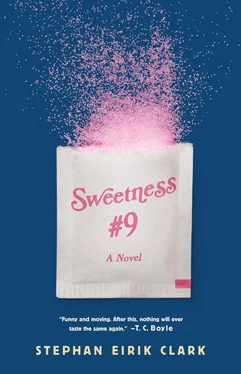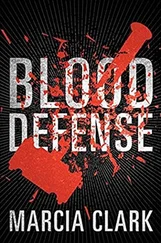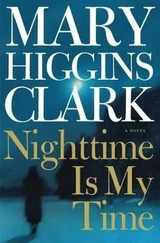For some reason, I thought he must have fallen silent because we’d stopped spending enough quality time together. But this only raised the question: How much time is time enough? To investigate, I called friends who had children and asked them how much time they spent with their kids. “Let’s define that as having the child within your visual range,” I said. No one was free with information. Our conversations were polite but strained. More than one person joked, “You’re not taping me, are you?”
A good friend from college bristled when I grew too persistent. “You’re going to pin me down? Okay, I spend between two and eight hours a day with my daughter. All right?”
I had the phone squeezed between my chin and shoulder so I could take notes. “And is two for weekdays and eight the weekends?”
“What is this for again?”
“I just don’t understand what I’m supposed to do with a six-hour range. You might as well be telling me you either neglect your child or love her very much.”
Though Jason hung up on me (and if you’re reading this, Jason, please accept my apologies; these were difficult days for The Family Leveraux), I viewed the first number he gave me as a good baseline, one I subsequently pursued.
The first day I carried a stop-watch in my pocket, I camped out in the downstairs living room, hoping to catch sight of my son on one of his trips between his room and the refrigerator. Near ten, I spotted him one last time, when he came out to put a plate and an empty glass in the sink. I followed him into the bathroom, small-talking as he brushed his teeth, then gave him a kiss on the top of his head and watched him walk away. As his bedroom door closed behind him, I fished my stop-watch out of my pocket and saw how much visual contact we’d had since breakfast: fifty-nine minutes and forty-one seconds.
I couldn’t leave it at that. The one-hour mark, though far short of my initial goal, was like a new thousand-point threshold for the Dow Jones Industrial Average, an all too important psychological plateau. So I knocked at my son’s door and pushed inside, and then I stood there silently like a man at the mall who’s taken a wrong turn and finds himself lost amidst a field of pink lingerie. I didn’t say a word, nor did he, but when I knew I had my hour, I nodded at him as if we’d agreed on something and stepped back out into the hall.
I wasn’t the only one who believed he had an answer to The Ernest Question.
Working on the belief that verbs were like so much bad cholesterol, something that could be flushed from your system if only you’d get your heart rate up and exercise a little more, Betty enrolled our son in a prestigious fencing school in Princeton. I joined her at his first match, secretly hoping I’d hear our son bark out a full-throated “En garde!” Instead, while his opponent fell into a dynamic pose across from him, with his foil angled up and held at the ready, Ernest stood there flare-footed and slouching, with the tip of his own weapon pushed down into the padded blue mat.
I cupped my hands around my mouth and yelled from the sidelines, “C’mon, E! You know how it’s done!”
Priscilla showcased her own reform effort later that same evening when we stopped at a pizzeria for dinner.
“When Sarin lived in California,” she said, “her father went out to the prison once a month and taught the men there how to eat the Rosicrucian way.”
Our pie had just been delivered to our table. Priscilla was reverse-engineering her first slice: taking off the cheese and pepperoni, eating only the crust and sauce.
“Rosicrucian?” I said.
“It’s basically macrobiotics, no sugars, a lot of raw vegetables. To eat well, he says you’ve just got to learn to get out of the way.
“He had a food co-op donate all the groceries,” she continued, “and after six months even the warden was singing the program’s praises. The prisoners became more tranquil, their interpersonal relationships improved. Some of the African-American prisoners started learning Spanish, even though they didn’t need a foreign language to get their GED, and a former high-ranking member of the Aryan Nation made a great show of reading The Autobiography of Malcolm X.
“Newspapers started to write all about it after this one guy on death row used his last words to promote the program. Maybe you read about his last meal in the Times. ”
“What’d he have?”
“Deep-fried seitan steaks with a mushroom and basil gravy, a broiled millet squash loaf, collard greens, and a dried fruit compote.”
“Nothing to drink?”
“Fresh carrot juice,” she said. “Six ounces. He was from Compton and known as Lady Killer, apparently without irony. They posthumously made him an honorary citizen of a village in the south of France.”
The TV caught our attention then; it was hanging in the corner, broadcasting a car chase or the news of a celebrity’s death — I forget which. The point is, it was only later, as we were finishing up our dinner, that Priscilla returned to the subject she’d introduced earlier.
“Why don’t we give it a try?” she said. “Macrobiotics, I mean.”
Her brother looked at her as he had when she’d first pulled off the cheese from her pizza.
“I’ll do all the cooking,” she said, looking now at her mother. “You won’t have to lift a finger.”
“Is that what you think I want?” Betty looked at me, her whole face collapsed. “So much for winning the Mother of the Year Award.”
Priscilla looked squarely at me, desperate for a show of support, a co-sponsor who’d help carry her bill. “What do you say?” she said. But these were difficult political times, when I knew not where to cast my allegiances; so I stuffed the pizza into my mouth and chewed while my wife took the floor.
“It sounds nice, really it does,” she said. “It’s just”—and she grabbed a piece of pepperoni that Priscilla had peeled free and abandoned on her plate—“well, we’ve all got our own tastes, for one, to say nothing of our different schedules and activities. Besides which, I just think it’s too much work for you. Do you know what it takes to feed a family of four?”
* Flavor chemists are not like the winemakers of the Napa Valley. We do not slap our name on every bottle that we touch. If we did, our clients would be unable to promote their products as “home-made” or place a grandmother's face on the box and promise the taste of another time. At Goldstein, Olivetti, and Dark, this commitment to anonymity was so great that it even followed us out onto the softball field, where we trotted into position while wearing grey leggings without stripes and navy blue shirts made fancy only by the word Team.
BY THE END OF AUGUST, I was driving out to my rented mailbox each lunch, as slowly as a man driving to his own funeral. Each day it was the same thing: no Albanian report, again and again. However much I dreaded receiving it, I hated anticipating it just as much. My performance as both a flavorist and an administrator was suffering — so much so that I feared even Ernst must have noticed. I had become a born-again doodler, a man enthralled by open windows and spiders crawling up the wall. I was sure everyone could see it. My coffee breaks had become more numerous, my “working” lunches more lingering, and if I wasn’t coming in late one morning, I was cleaning out my test tubes and driving home early that same evening.
When Ernst called to invite me to breakfast on the first Friday in September, I was sure it was so he could push aside his coffee cup and lapse into German while pounding at the table and venting his spleen. “Tennessee tells me you’re barely there,” I thought he’d say, “and that when you are in the lab you’re still no more present. You think I hired you for this? This is how you repay me!?”
Читать дальше












